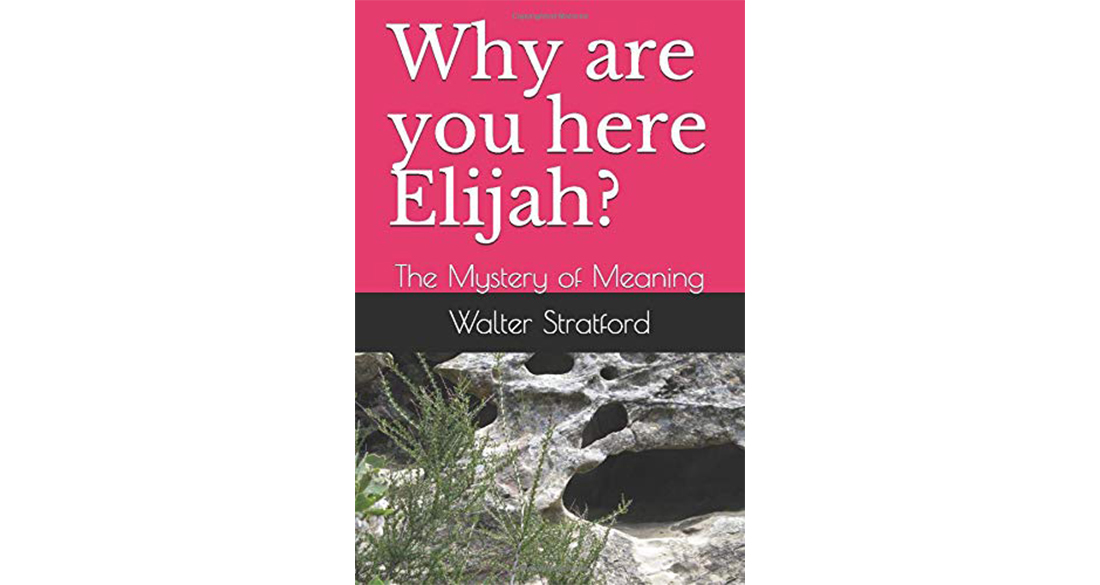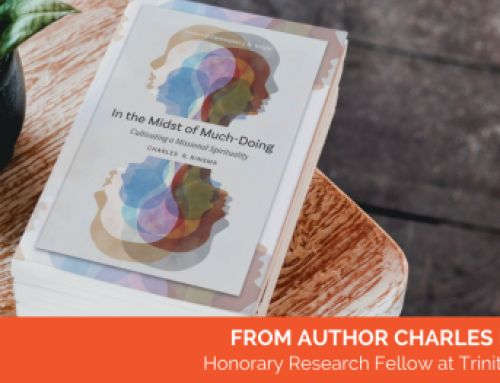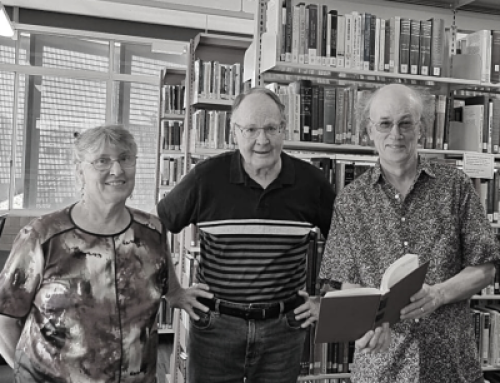People long for meaning and purpose. The question of meaning is with us throughout our lives. Sometimes it may be just a whisper in the back of our minds. At other times it may be utterly deafening and drown out everything else. This is not only true for people, but for organisations as well. The Uniting Church has been experiencing a time where it asks difficult questions of purpose and meaning, in light of significant demographic shifts. Society is changing. What, after everything is said and done, is our place in this new world?
Walter Stratford addresses questions of meaning and purpose in his new book, Why Are You Here Elijah?: The Mystery of Meaning. Walter is a retired Uniting Church minister with a PhD and a host of ministry experience both in Australia and overseas. He regularly comes into Trinity Theological Library, where he spends time researching and writing.
In Why Are You Here Elijah?, Walter explores themes of meaning and purpose by looking at the story of the prophet Elijah and his encounter with God in a cave at Mount Horeb, from 1 Kings 19. After Elijah defeats the prophets of Baal, the story goes, Queen Jezebel vows to have him killed. Elijah’s response is to flee into the wilderness, to Mount Horeb, where he finds shelter in a cave. It’s in the cave where God confronts Elijah with the question—why are you here, Elijah?
Walter suggests that the question—why are you here?—is relevant for all of us throughout our lives. To begin to answer this question for ourselves, we must have an awareness of the physical space that we occupy; we must embrace our connection to the land. Only in this way can we be poised to address the many needs that are out there. “The cries of the world are immediate, requiring attention” (p. 13). But Walter doesn’t just encourage us to turn our focus to realities and events of this world that we belong to; he urges us toward an awareness of our spiritual reality as well. He uses the notion of living in a world filled with air to approach an understanding of the Divine. Air is all around us; so too is the Spirit. Just as air flows through our bodies, so too does God. Connecting with this reality ought to spur us on to works of love, mercy, and justice, because to experience God is to experience love, mercy, and justice. But in our search for meaning, Walter warns us not to shun mystery. God’s kingdom isn’t like other kingdoms. God’s kingdom is a process, always beginning from a position of meekness: “The kingdom of God works from within, growing and blossoming with an alternative way that will eventually overcome dominance and make justice and peace visible, and available for all” (p. 52). This is a mystery; embracing this mystery helps us answer God’s call in our lives.
Questions of purpose and meaning have come into focus more sharply in recent times, particularly in the context of the Uniting Church. The world is rapidly changing, and so the future seems ever more veiled in mystery. The question—why are you here?—resounds through all chambers of the church. If we can answer this question, we may yet have life. And in the words of Walter: “With life sustained, we can live within the tempest and not be afraid” (p. 24).






